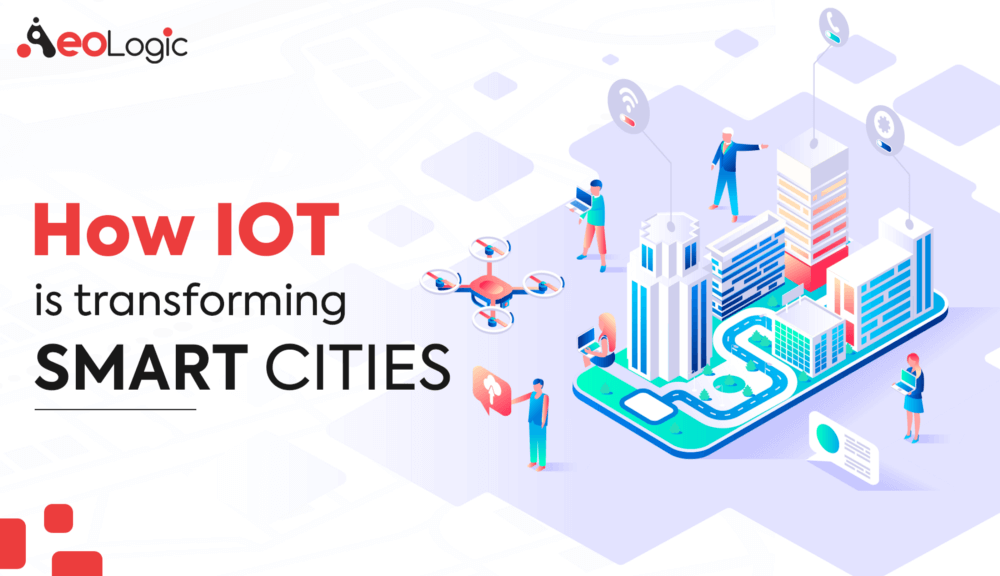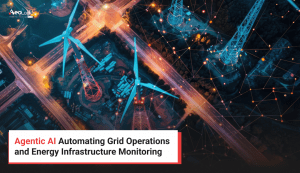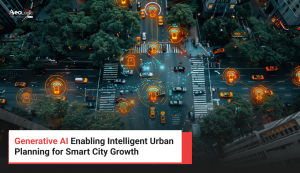Every day, we connect millions of devices to the internet. Today, these mobile computers help us communicate with a wide range of sensors and smart devices present in our environment.
Take car care, for instance. By downloading a diagnostic tool app and connecting your phone to your car, you can scan and receive codes to elucidate any issues with your automobile. This is only one of many examples of how smartphones and the development of the Internet of Things (IoT) are transforming interactions.
In the near future, computer systems will be able to connect with IoT-enabled devices and sensors in a way that enables easier, more seamless management of metropolitan areas. This will give way to the rise of smart cities.
Smart Cities and IoT technology go hand in hand; IoT is what will make Smart Cities possible. millions of devices, all connected through a streamlined framework, improving quality of life; while reducing the negative impacts of the city on the surrounding environment.
Keeping the Cities Connected — Expected Challenges
Smart Cities are inherently difficult for two major reasons: size and complexity.
Today’s environments are compact, unique, constantly growing, and always in motion. The most difficult of all is to keep a smart city connected. There are definitely going to be a lot of challenges that will be there to fulfill the need. We’ll try to address some of those big challenges.
Infrastructure
Smart Cities utilize sensor technology to gather and analyze information in an effort to improve the quality of life for residents. Sensors collect data on everything from rush hour stats to crime rates to overall air quality. A very complicated and pricey infrastructure is required to install and maintain these sensors.
Major metropolitan areas are already challenged with replacing decades-old infrastructures, such as underground wiring, steam pipes, and transportation tunnels, as well as installing high-speed internet. Broadband wireless service is increasing, but there are still areas in major cities where access is limited.
Exorbitant Costs
It goes without saying but we all know just how costly keeping an entire city of devices connected would be — not to mention the costs of implementing connectivity, to begin with. Building a solution of this scale from scratch would be an immense undertaking, though most traditional telecom providers don’t have the means or pricing structure to make smart city connectivity financially realistic.
Quality of Connection
Maintaining a high level of connection is also difficult. Especially on an extremely large scale like this. Every city is laid out and planned differently and faces its own environmental challenges, both of which can complicate connectivity. The connection quality is one of the most important aspects of a smart city since low-quality connections — or even total disconnections — can create a cascade of problems. Simply put, a mess.
How Will IoT Help in Shaping the Cities of Tomorrow
Here’s how IoT will make our surroundings smart and raise our living standards:
Improve Public Transportation
Public transportation gets disrupted whenever there are road closures, bad weather, or equipment breakdowns. IoT can provide mass transit authorities, the real-time insights they need to implement contingency plans, ensuring that city dwellers always have access to safe, reliable, and efficient public transportation. This might be done using insights from cameras or connected devices at bus shelters or other public areas.
A Better Environment
While a significant portion of greenhouse gas emissions come from cities, these can be cut by up to 15% with smart city solutions by reducing electricity and heat production.
Smart cities will also play a pivotal role in reducing water consumption. Applications such as smart irrigation systems, water leakage, and quality and consumption monitoring could save a city between 25–80 liters of water per person, per day.
Efficient Water Supply
IoT will potentially change the way cities consume water. Water leaks and improved data integrity are some of the possibilities with the help of smart meters. This will in turn prevent lost revenue and boost productivity. Also, these meters can be designed to help consumers with delivering real-time access to their consumption and water supply.
Health
Technology is providing new strategies and alternatives for the prevention and treatment of chronic diseases. In China, for instance, drones with facial recognition technology are being used to track those affected with coronavirus to ensure they do not break quarantine and risk spreading the virus.
These new technologies are reducing cities’ burden of chronic disease. This is measured across the WHO’s central metric disability-adjusted life years (DALY), which is equal to one year of “healthy” life lost due to contracting a disease. For example, using data-based interventions for maternal care could reduce DALYs by more than 5%.
Smart Parking
We all can agree that we just love the impromptu game of finding a parking spot in a city. Who doesn’t like going around the same place several times, finally finding a parking spot, getting out of your car, and then seeing that you can not park there because it’s ‘Tow Away Zone’? Just kidding; as with traffic, nobody enjoys this.
By installing IoT sensors in parking areas, we’ll be able to know exactly when a driver leaves a particular parking spot. This information can then be sent to the smartphones of drivers in the area looking for a vacant opening.
Efficient Waste Management
IoT has the potential to drastically transform the waste management industry. By installing sensors on waste containers, garbage collectors would only have to stop by if a container is full. This would eliminate many inefficiencies in the industry and reduce operational costs.
Improves Security and Privacy
IoT is already providing improved security with video surveillance, allowing police to monitor live feeds from across an entire city and relying on artificial intelligence systems to detect and report incidences of crime. There is no doubt that implementing IoT Technology in Smart cities will be a wise decision considering the security of entire city affairs.
IoT — Fueling The Future Of Smart Cities
We all just went through the benefits and ease that this technology is capable of providing. With it’s potential to eliminate traffic, save energy, improve waste management, and overall improving human lives on earth, IoT is catalyzing the realization of smart cities around the globe. In fact, smart city capabilities seem to be growing right alongside the number of IoT devices.
But do we have to wait until then? No, today we can find IoT sensors are now found in most vehicles and equipment. Whether the goal is to prevent crime or manage parking lots, these devices are already assisting enterprise-level organizations in developing more robust systems.
And in smart cities around the world, you can already find energy-efficient intelligent buildings, smart grids, and lighting systems to conserve energy and even road infrastructure which adapts to everchanging traffic situations. These solutions will only become better with more time and data.
What do you think the future of IoT and smart cities looks like? What developments do you want to see sooner rather than later?
Tell us your thoughts…
At Aeologic Technologies, We combine our market research expertise across an array of technologies that help in building a better future. We’ve been carrying out qualitative and quantitative research projects for our clients for several years, establishing ourselves as the gold standard in reliable technical research.
For the last 8+ years, we have been giving IoT based solutions for enterprises and governments across the globe. From Smart Marts & Drone Deliveries to Smart cities, we constantly work on uplifting the living standards.
Do you also have an amazing idea that can change the world? we’d love to hear it.

Manoj Kumar is a seasoned Digital Marketing Manager and passionate Tech Blogger with deep expertise in SEO, AI trends, and emerging digital technologies. He writes about innovative solutions that drive growth and transformation across industry.
Featured on – YOURSTORY | TECHSLING | ELEARNINGINDUSTRY | DATASCIENCECENTRAL | TIMESOFINDIA | MEDIUM | DATAFLOQ









